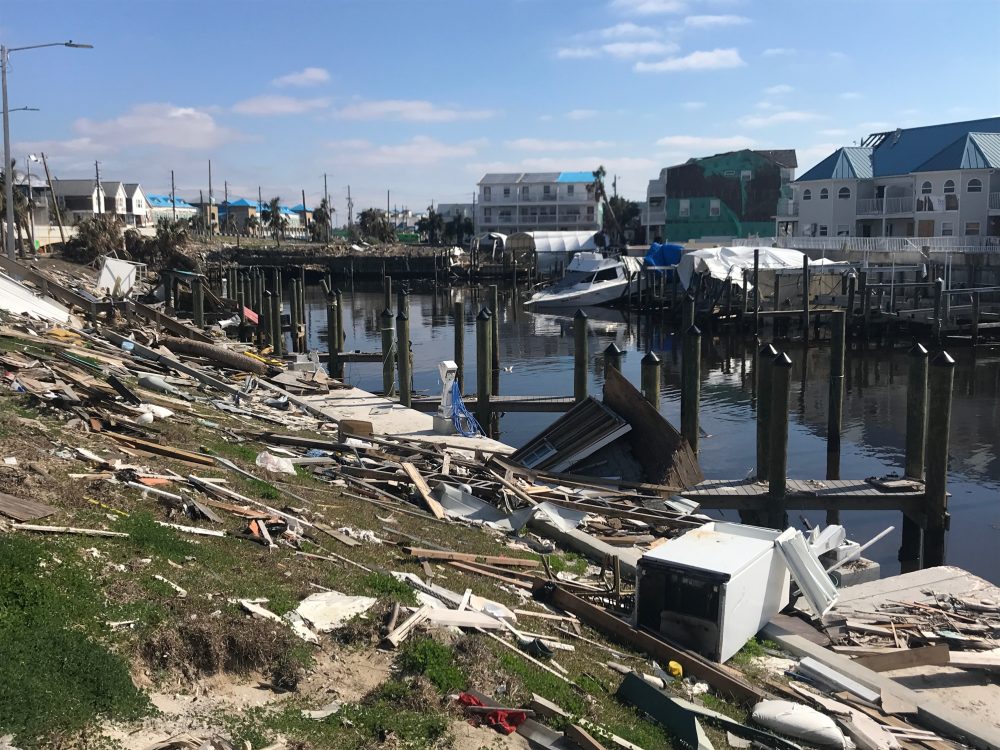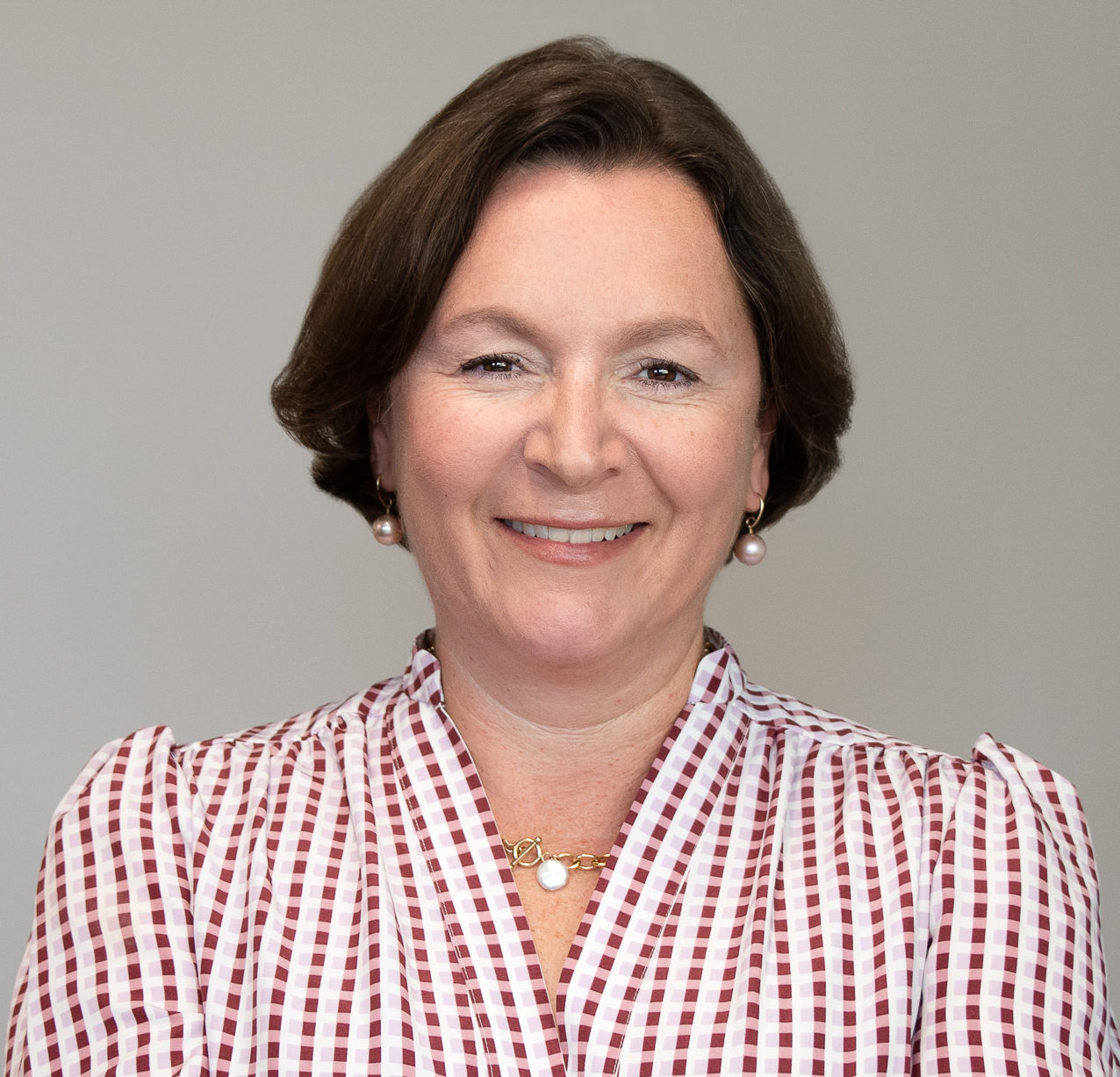Four Steps to Navigating Hurricane Funding Data
I’ve written often about the Measuring the State of Disaster Philanthropy: Data to Drive Decisions report, speaking mostly about the aggregated data and how that is important to the philanthropic community. Today, I am going to share a super practical approach to the report by showing you how to pull out donor-level data for Hurricane […]
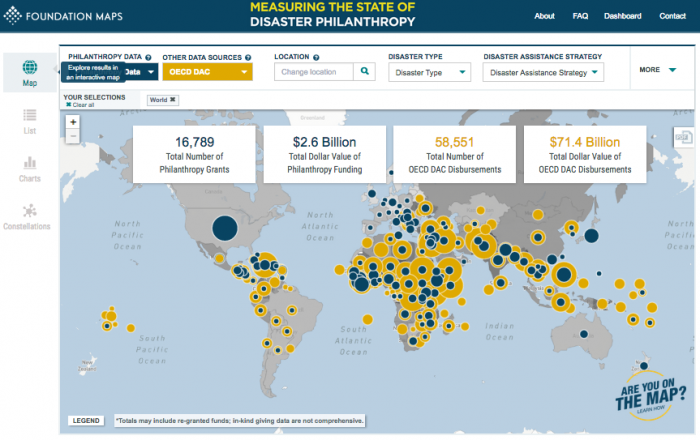
I’ve written often about the Measuring the State of Disaster Philanthropy: Data to Drive Decisions report, speaking mostly about the aggregated data and how that is important to the philanthropic community.
Today, I am going to share a super practical approach to the report by showing you how to pull out donor-level data for Hurricane Harvey. Four steps follow that will lead you to a better understanding of how funders responded to the devastating storm.
1. Go to the Measuring the State of Disaster Philanthropy Mapping Platform.
2. Narrow the data set down to the year 2017 by clicking “more” and then selecting “2017.” In the same box, further narrow down your search by typing “Harvey” into the “Filter by Keyword” box.
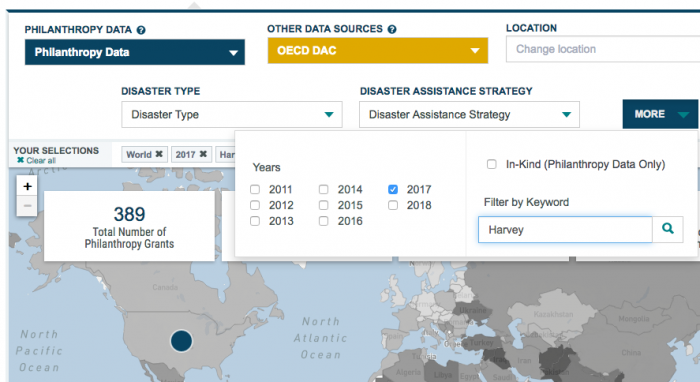
3. Click on the United States. This step reveals the total number and amount of foundation grants that were awarded.
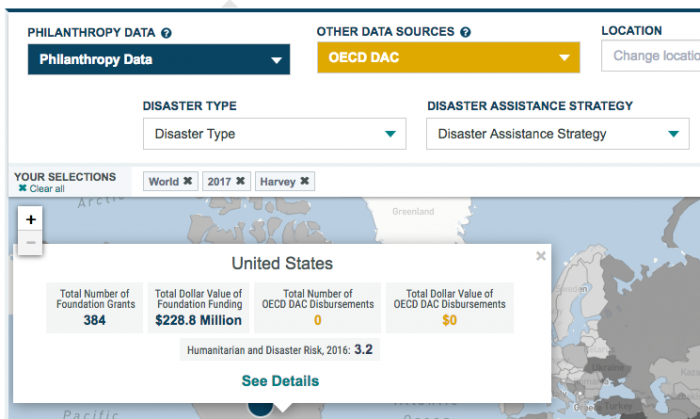
4. Click on the “See Details”, to see, search, and get more details on Funders, Recipients, and Grants. A click on the first grant that appeared in my search reveals information on the $10 million award on behalf of the Walmart Foundation to the Salvation Army, Feeding America, Convoy of Hope, Team Rubicon, and the Hurricane Harvey Relief Fund at the Greater Houston Community Foundation.
With a simple five- to ten-minute search and study, one can learn a tremendous amount about which foundations awarded critical dollars to Hurricane Harvey relief and recovery activities in 2017. Data like this is vital to understanding the big picture of long-term recovery and how best to fill important funding gaps.
Special thanks to Andrew Grabois, Supriya Kumar, Grace Sato, and Larry McGill at Foundation Center for their efforts to help visualize data.
More like this
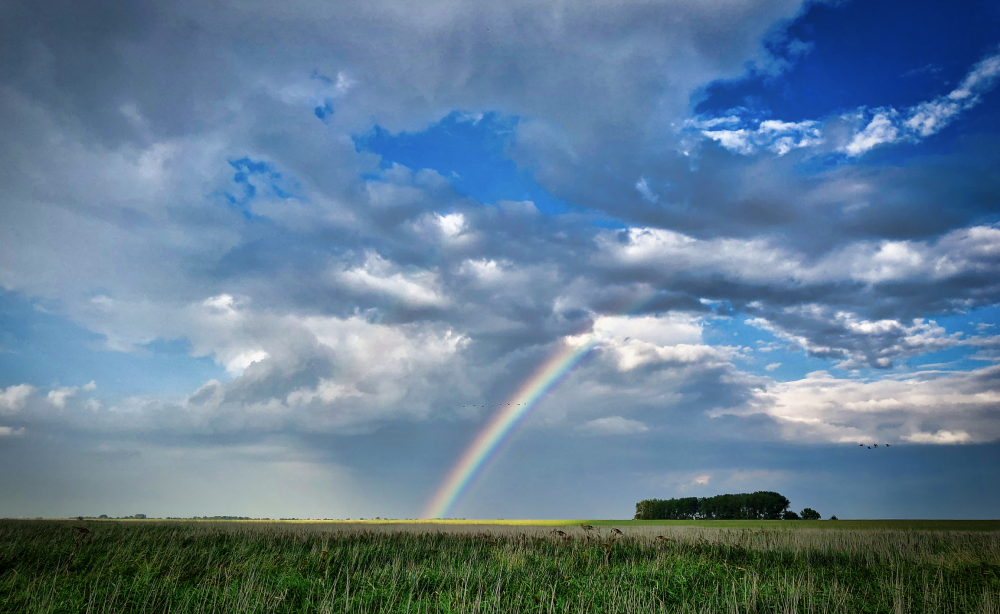
Reflections on 2018: Gratitude, Hope and Optimism
